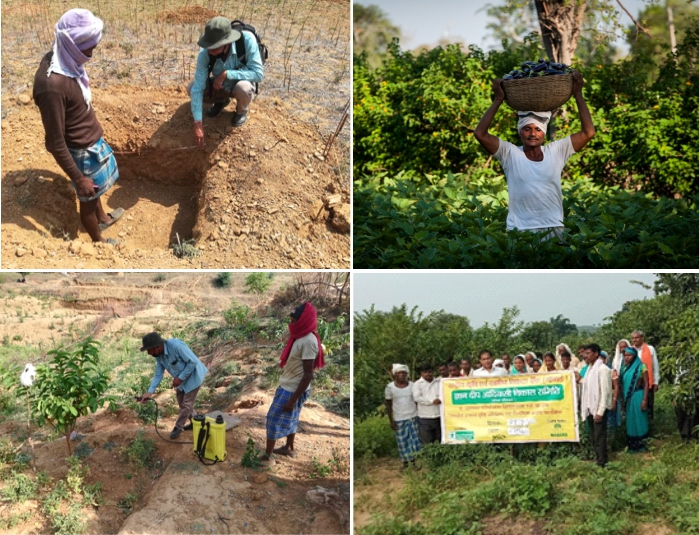|
Sustaining Lives of Tribals during COVID-19
COVID-19 poses a huge challenge for India in maintaining food security and ensuring livelihood sustainability. Lockdown in a country of India’s scale has socially, economically and institutionally negatively impacted the farmers, daily wage workers and other marginalised groups. Development Alternatives Group (DA) is putting in place additional efforts to not only provide immediate relief in the form of wage employment to the poor tribal families in Bundelkhand, one of the most poverty stricken regions in India but also trying to ensure sustainable livelihood options for them through farm diversification, soil and moisture conservation, water security and restoring agro-ecosystems through WADI (a model for sustainable tribal livelihood) development under NABARD’s Tribal Development Fund (TDF) programme. The main features of ‘WADI’ (meaning a small orchard of one or two-acres with multiple crops) model are economic viability of tribal families, employment generation, sustainable agriculture, social change, improved quality of life, nutritional self-sufficiency and women empowerment. Therefore during COVID-19 lockdown, where there have been no daily wage employment opportunities available in the rural areas, this initiative has been helping sustain the lives of the tribal families. Currently, 250 WADI establishment work is under progress wherein pit digging, cattle protection trenches and earthen water harvesting structure activities are being implemented by the tribal farmer’s collectives by involving daily wage labourers. ■
|
